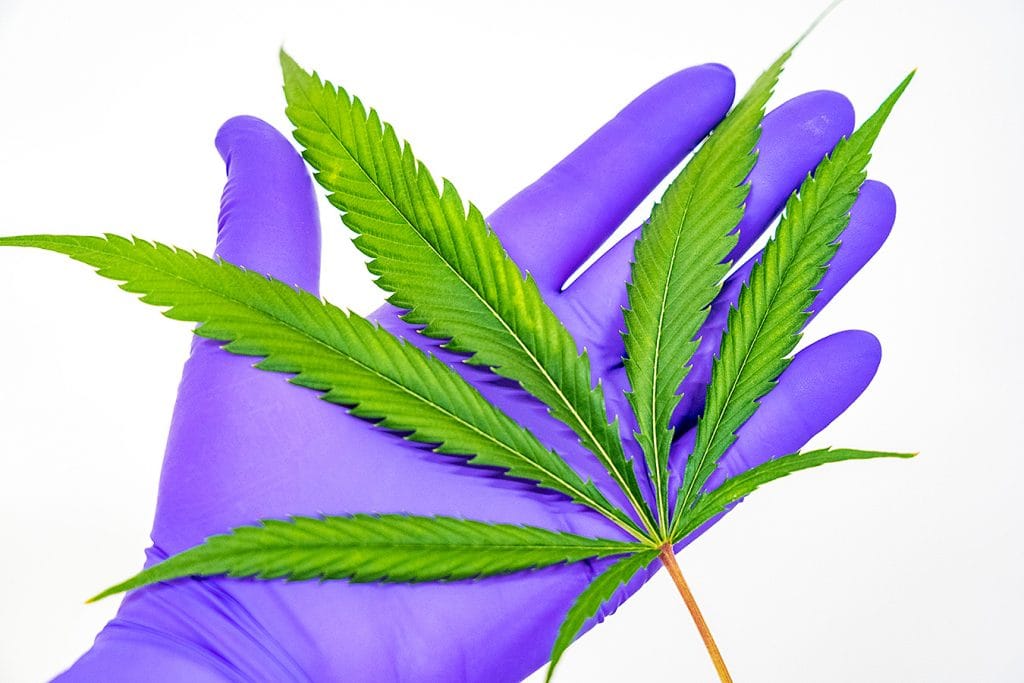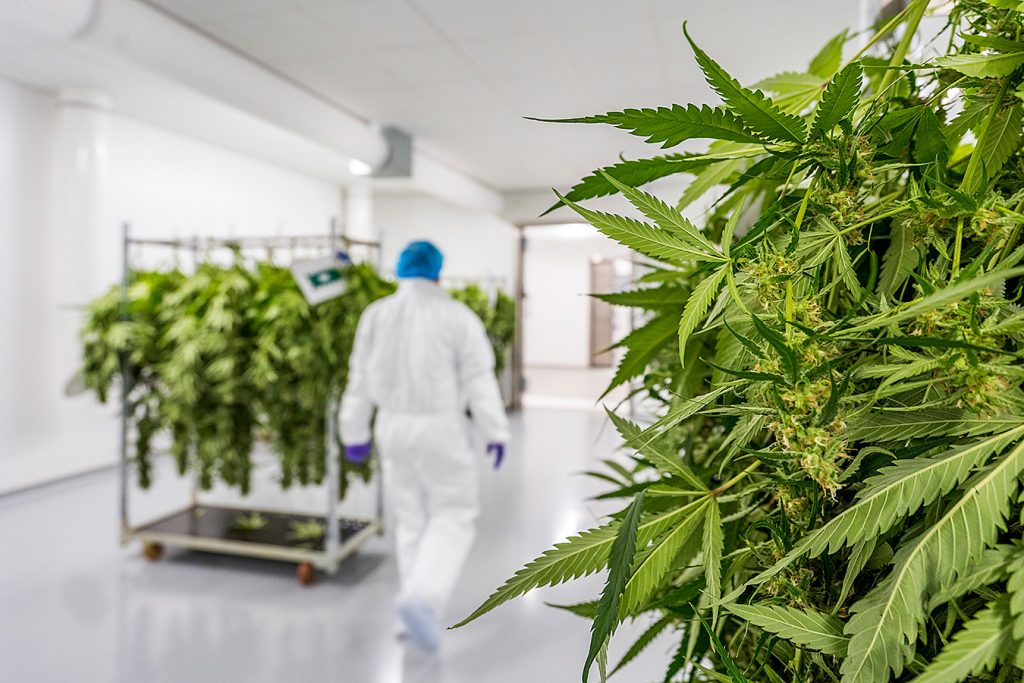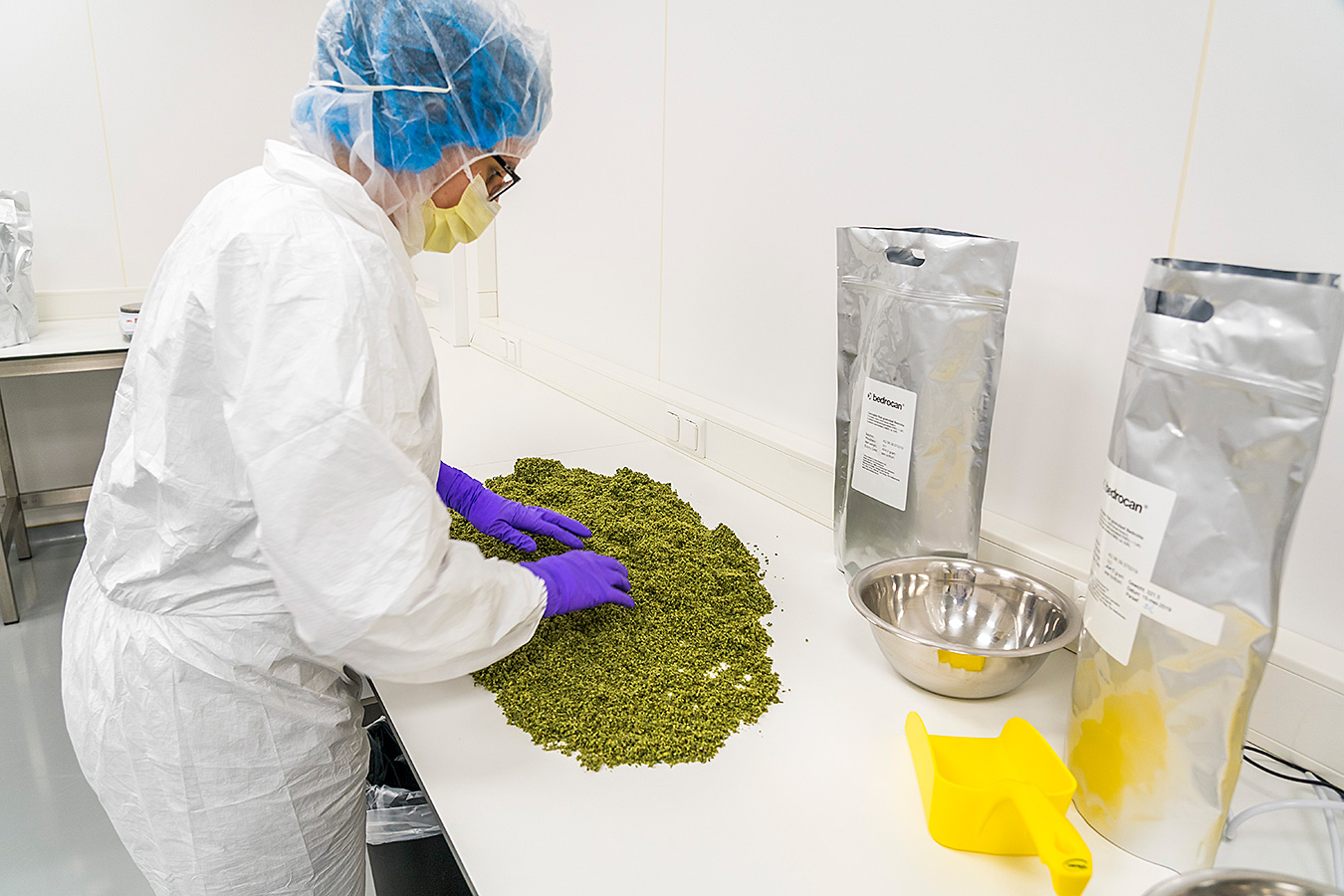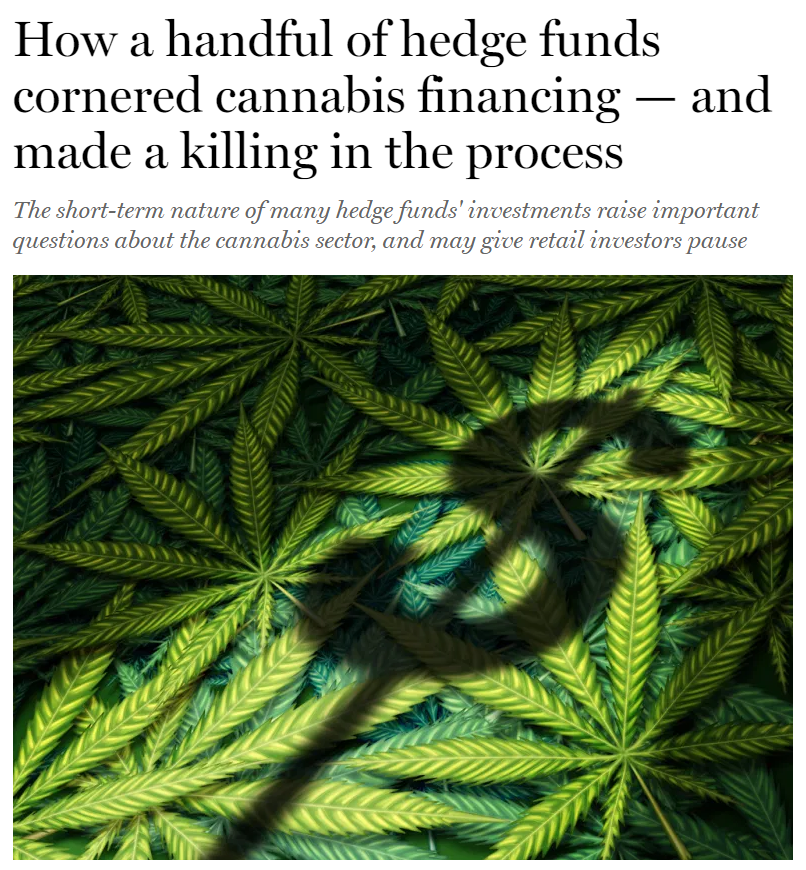The current state of medicinal cannabis investing
There has been a tremendous amount of hype surrounding the global cannabis industry and cannabis investing over the past few years. This hype, mostly stemming from the boom in the Canadian cannabis market, has created unrealistic expectations particularly for investors in the sector. With more and more cannabis companies being unable to meet these expectations, the industry has reached a transitional moment, a transition that is only being accelerated by the COVID-19 crisis. As an expert in the field, what does Bedrocan encounter in the medicinal cannabis industry from an investment perspective? What are the regulatory challenges we face as a medicinal cannabis contract manufacturer for the Dutch government? As a potential investor in this space, you might like to know, so here are some insights.
Author: Andrew Kraszewski – Business Development at Bedrocan

Canadian cannabis and the capital markets: A cautionary tale
Cannabis as both a medicine and a consumer product has garnered a significant amount of attention lately owing mostly to the capital markets activity in North America. In the build up to recreational cannabis legalisation in Canada in October 2018, billions of Canadian dollars were funnelled into the sector, ushering in a new era of the “green rush” and the prosperity of legal cannabis markets. But now, in only year two of full legalisation in Canada, the cannabis markets paint a far gloomier picture, with some of Canada’s household names in cannabis running out of cash. With significant change now expected in the industry, how we got to this point exactly and what this means for the sector moving forward has important ramifications for Bedrocan and our place in the international medicinal cannabis ecosystem.
My personal journey in the medicinal cannabis sector began in North America in January 2016. At that time, none of the big banks or major institutional investors were active in the industry because cannabis was, and still very much is, a controlled substance meaning any cannabis business activity carries a high degree of regulatory risk. However, in Canada, where the cannabis market was being liberalised (alongside numerous states in the USA where state laws for medicinal cannabis programs and recreational cannabis programs were being instituted), certain financiers and investment banks were willing to take the necessary risks to advise and fund this burgeoning sector. Mark Rendell’s 2018 Financial Post exposé into the financing of the Canadian cannabis market revealed that, curiously, only a handful of companies were responsible for financing vast portions of the industry. These financiers were opportunistic hedge funds that do not normally have the long-term interests of the companies at heart. As Rendell highlights, these investors deployed several tactics to generate short-term, outsized returns and they recycled their capital through deal after deal after deal.
Big Canadian companies
At the time, the narrative protruding from the big Canadian companies was that they intended to rule the recreational market at home and the medicinal cannabis markets abroad. To be the biggest and best, it was all about building capacity. Capacity, as a company valuation metric, was one that investors often pointed to when assessing a cannabis company, the simple reason being that the more cultivation space a company had, the greater its potential revenue. As a result, operators ploughed millions of Canadian dollars into building manufacturing facilities both in Canada and foreign jurisdictions such as Denmark, Jamaica, and Colombia. In the end, it really did not matter if these investments made strategic sense or not, for the investors of these companies, the opportunistic hedge funds, were purely interested in executing a financial trade, normally with a retail investor at the very end, who had been led to believe that the cannabis hype was all worth it.
Cultivation capacity
With manufacturing facilities now shuttering in Canada and internationally, it is evident that many companies overextended their cultivation capacity. In Canada, a widening gap is developing in the recreational market between Canadian sales throughput given the limited retail stores opened to date and the volume of dried cannabis currently sitting in supply channels. In what has now become a race to the bottom, Canadian operators are pivoting towards outdoor cultivation in a bid to reduce cultivation costs (and finally reach profitability).
With respect to the international pullback, the story is a bit more complex and requires an understanding of the regulatory environment in which medicinal cannabis companies operate.
The Single Convention on Narcotic Drugs of 1961
The single most important piece of legislation that impacts medicinal cannabis companies globally is the United Nations Single Convention on Narcotic Drugs of 1961 (the “Single Convention”). Under this international drug control regime, the use of cannabis is limited to purely scientific and medicinal purposes. The Single Convention stipulates that countries must adopt a stringent control system for medicinal cannabis through a government agency. In the end, it gives countries a degree of flexibility in their interpretation of control but the Single Convention specifically requests that local government agencies purchase and take physical possession of medicinal cannabis before it is sold domestically or traded internationally.
Special Access Schemes
Domestic medicinal cannabis programs provide patients with access to medicinal cannabis under Special Access Schemes, which require evidence that patients have exhausted their options with respect to trying registered medicines. Certainly, providing access to medicinal cannabis under Special Access Schemes is fully compliant under the Single Convention. However, when it comes to implementing the Single Convention, countries have applied varying degrees of stringency with regards to medicinal cannabis controls. A country with one of the strictest interpretations of the Single Convention is the Netherlands. It is through the Dutch Office of Medicinal Cannabis (OMC), where Bedrocan cannabis flower as an active pharmaceutical ingredient is distributed to pharmacies, researchers, and pharmaceutical off takers, both domestically and internationally. In the Netherlands, the OMC is responsible for overseeing the production of cannabis for medicinal and scientific purposes and Bedrocan is a contract manufacturer for the Dutch Government.
Controlled substance
All this is important to stress the fact that medicinal cannabis is a highly controlled substance, which is difficult to move across borders. Further, it highlights that medicinal cannabis should be treated like any other pharmaceutical product, which must be produced in accordance with good manufacturing practice (GMP). Many companies simply discovered that medicinal cannabis exportation would never be possible from their chosen jurisdiction, for a multitude of reasons, and were forced to either focus on the domestic opportunity or abandon ship altogether.

In short, business plans built upon the export of medicinal cannabis from one jurisdiction to another have so far failed to meet expectations because they underestimated the challenges presented by the Single Convention and that holding a license to cultivate, process, and export medicinal cannabis does not mean anything unless there is an off taker in another nation – one which has already been granted an import permit from its local authority.
The Netherlands and its place in the international medicinal cannabis supply chain
The Netherlands was the first nation in Europe to legalise medicinal cannabis back in 2003. It has been exporting medicinal cannabis since 2007 when the first shipments to Italy and Finland were made. It is very important to note, however, that while the OMC has been exporting medicinal cannabis for quite some time, this was never the primary objective of the Dutch medicinal cannabis program; the focus has always been on the domestic patient in the Netherlands. As such, exports from the Netherlands have grown organically over time in response to demand in other nations. For example, in 2019, the Dutch government received a formal request from their German counterparts to increase the annual volume of medicinal cannabis flower imported into Germany from 1,500 kg to 2,500 kg, a request that was subsequently granted for 2020.
Sole supplier
Bedrocan, which can trace our beginnings to the 1990s as a seed production company, has been the sole supplier to the OMC since 2003 making us one of Europe’s oldest medicinal cannabis companies. Undeniably, the sheer length of our operating history has afforded us the opportunity not only to scale up operations in a capital-efficient manner as the international medicinal cannabis market expanded but also to hone our cultivation craft. The quality of Bedrocan’s genetics, which have been grown for over twenty-five years, in conjunction with our tried and tested cultivation techniques, results in our ability to produce high-quality and consistent cannabis flower. In addition, Bedrocan has invested in building cultivation facilities that are GMP certified meaning we strive to reach the highest possible standard for our products. All considered, Bedrocan’s flower can be found in clinical research projects, product development initiatives, and Special Access Schemes worldwide.
From our perspective, the topic of standardisation is one of the biggest roadblocks to the acceptance and prescription of medicinal cannabis today. Quite simply, it is challenging to prescribe medicinal cannabis when you do not know the exact contents and amounts of cannabinoids in a cannabis-based medicine. Further, standardised, and high-grade raw material as an active pharmaceutical ingredient is critical for any pharmaceutical product development. Without question, our ability to standardise the manufacturing of cannabis flower has generated trust in Bedrocan’s products across regulators, researchers, doctors, and patients.
Successfully export medicinal cannabis
This trust that has been built in Bedrocan’s medicinal cannabis flower alongside the Dutch Government’s strict adherence to the Single Convention has meant that the Netherlands is one of a handful of nations that has been able to successfully export medicinal cannabis on a consistent basis. All things considered, importing nations are far more likely to trust a government counterparty that is operating within the confines of the Single Convention. Additionally, countries are more likely to import medicinal cannabis that has been grown and processed under GMP – that is to say, medicinal cannabis that has all the necessary paperwork to back it up. These factors have contributed towards the Netherlands, together with Bedrocan, now occupying a unique position in the international medicinal cannabis supply chain.

Investing in the medicinal cannabis sector
For investors who have already invested or are considering investing in the medicinal cannabis sector, comprehending the regulatory landscape is the most important prerequisite to making informed investment decisions. Being frank, the international medicinal cannabis industry is a very difficult business and building supply chains across borders is fraught with regulatory challenges. Furthermore, the investment landscape has changed dramatically over the past twelve months following a precipitous fall in market valuations, which has only been compounded by the COVID-19 crisis. Naturally, history often repeats itself and the cannabis industry to date has been your typical story of boom and bust.
Longer term
Now that cannabis markets have corrected, investors should start to look at companies that are positioned for the longer term, have their core fundamentals in place, and focus on a specific segment of the medicinal cannabis supply chain. Luckily for us at Bedrocan, we have been in a very unique situation given our relationship with the OMC in our singular role as a contract manufacturer and the fact that we have never been beholden to external pressures, such as capital market forces. We have remained laser-focused on doing what we know – and that is growing high-quality, standardised medicinal cannabis flower. As it transpires, one of the biggest issues currently facing the medicinal cannabis market on the cultivation side is the production of cannabis flower that meets the highest quality standards and ultimately achieves the necessary batch-to-batch consistency in terms of cannabinoid content to be effectively used as a medicine.
Specialisation
In that vein, we believe that specialisation is a trend that will continue to develop in the medicinal cannabis market. Given the capital-intensive nature of medicinal cannabis operations generally, full vertical integration is a fool’s errand and it makes more sense to collaborate with companies across the entire supply chain, something that happens in any regular industry. In the end, we hope that medicinal cannabis will be treated like any other medicine and that it follows the normal pharmaceutical pathway. This route is definitely timely and costly, and in search of greater returns, cannabis companies have started shifting their resources away from the medicinal cannabis market towards the recreational opportunity, which often comes at the expense of the medicinal cannabis patient.
The fallout from the recent cannabis market downturn has only served to underline this trend. Indeed, there has never been a more important time to invest in a responsible medicinal cannabis ecosystem and at Bedrocan, we will continue to do what we have done since our inception: cultivating to serve our patients.
Subscribe to our newsletter
Stay informed with our latest updates by subscribing to our newsletter for exclusive news and compelling content. Rest assured, we prioritize the integrity of your inbox, delivering quality over quantity, with newsletters dispatched judiciously.







